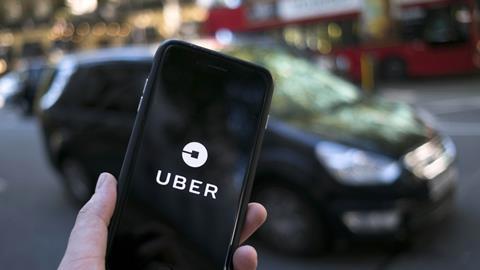Taxi company Uber could face a flood of backdated claims after an employment appeal tribunal upheld a ruling that classifies its drivers as workers rather than self-employed.
In a judgment handed down last year, a tribunal ruled that two Uber drivers were workers and should be entitled to holiday pay, rest breaks and the minimum wage. The employment appeal tribunal today upheld that decision.
Uber said it plans to appeal.
Paul Jennings, partner at City firm Bates Wells Braithwaite, which represented the drivers, said the ruling would also have significant implications across the so called ‘gig economy’. He added: ‘We anticipate that tens of thousands drivers will now seek to make substantial backdated claims. Our clients have fought tirelessly to gain the rights that they clearly should have been afforded from the outset.’
The tribunal said any of the 40,000 drivers registered as Uber drivers in the London area and who had the Uber app switched on, operated under a 'worker' contract and therefore entitled to workers’ rights.
Jon Heuvel, employment partner at national firm Shakespeare Martineau, said: 'This is by no means the end of the issue - continued pressure from trade unions calling for tighter regulations means that the Uber ruling will likely be a catalyst for further scrutiny. The very nature of businesses like Uber is the flexibility it offers to the business and its drivers. However, employment practices cannot be left unregulated and rights of workers cannot be ignored unless businesses are willing and ready to face the backlash of legal and reputational repercussions.'
The GMB union hailed the victory as a ‘landmark decision’ which ensures drivers are given the rights to which they are entitled. Legal director Maria Ludkin added: ‘Uber must now face up to its responsibilities and give its workers the rights to which they are entitled.'
But Richard Nicolle, employment law partner at litigation specialists Stewarts, said those arguing the ruling signalled the 'death knell' for Uber are almost certainly overstating the position. 'Even if an appeal is not granted, it is likely Uber will be able to make modifications to their business model and relationships with drivers that may avoid worker status in future. For a company of Uber's vast resources, the necessary changes may reduce profitability but not undermine the business model.'
Tom Elvidge, Uber UK’s acting general manager, said almost all taxi and private hire drivers have been 'self-employed for decades’ and that drivers use Uber because they value the freedom to choose if, when and where they drive.
He added: 'The tribunal relies on the assertion that drivers are required to take 80% of trips sent to them when logged into the app. As drivers who use Uber know, this has never been the case in the UK.'Over the last year we have made a number of changes to our app to give drivers even more control. We’ve also invested in things like access to illness and injury cover and we’ll keep introducing changes to make driving with Uber even better.’




























9 Readers' comments